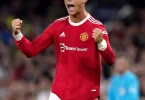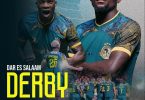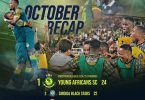After becoming the first African nation to qualify for the World Cup semifinals, Morocco hava certainly made a name for themselves at Qatar 2022.
RELATED: List Of Players To Have Scored The Most Goals In A Single FIFA World Cup History
The Moroccans have beaten the likes of Belgium, Spain and Portugal so far in the tournament – conceding just one goal across five games.
The country’s exploits on and off the pitch have captured the world’s attention as their underrated players shine on the field and their devoted fans make themselves heard within stadiums.
Morocco have been referred to as the Atlas Lions throughout their journey in Qatar, but why exactly is that? The Sporting News takes a look.
Why are Morocco called Atlas Lions?
Morocco’s team nickname is a reference to an animal that was once found in the country. The Atlas Lion, otherwise known as the barbary lion, was native to North Africa and prowled the Atlas Mountains which are found in Morocco, Algeria and Tunisia.
RELATED: Ronaldo vs Messi: The numbers compared
Sadly these lions are now considered extinct in the wild with the species subject to mass hunting in the early 20th century. Thankfully, the animal lives on in captivity, with Morocco’s Rabat Zoo home to 37 Atlas Lions as of early 2022 – the largest population in the world.
Morocco’s men’s football team are also now ensuring the Atlas Lions are heard all around the world.
Why do Morocco wear red?
Morocco’s home kit at the 2022 World Cup is predominantly red and this is a nod to their country’s traditional colours.
The current Moroccan national flag boasts a red background with a green star in the centre. While the flag has changed over the centuries, it has contained red since the 12th century.
Red is considered a significant colour in Morocco due to its historic and religious relevance.
Morocco World Cup history
Prior to the 2022 World Cup, Morocco had won just two games at the tournament in their history.
Their 1986 campaign was previously their best and saw them reach the Round of 16 after topping a group that contained England, Portugal and Poland. They were beaten 1-0 by eventual finalists West Germany in their first knockout game.
| Year | Finish | Results (W-D-L) | GF | GA |
|---|---|---|---|---|
| 1970 | Group stage | 0-1-2 | 2 | 6 |
| 1986 | R16 | 1-2-1 | 3 | 2 |
| 1994 | Group stage | 0-0-3 | 2 | 5 |
| 1998 | Group stage | 1-1-1 | 5 | 5 |
| 2018 | Group stage | 0-1-2 | 2 | 4 |










